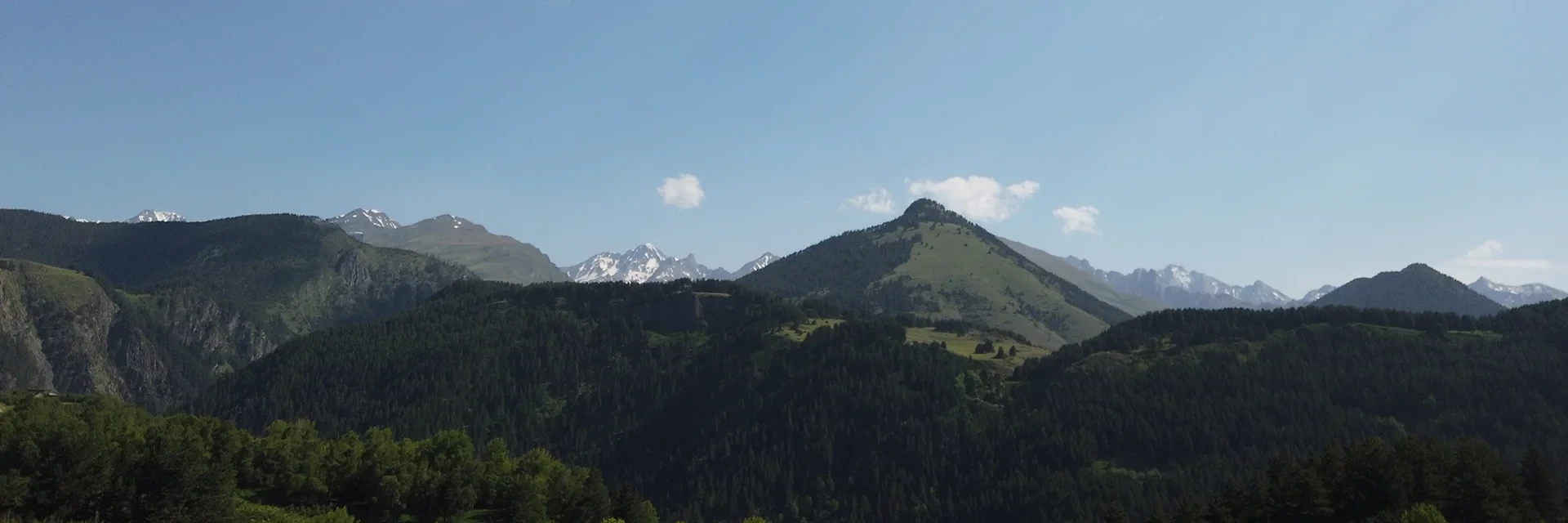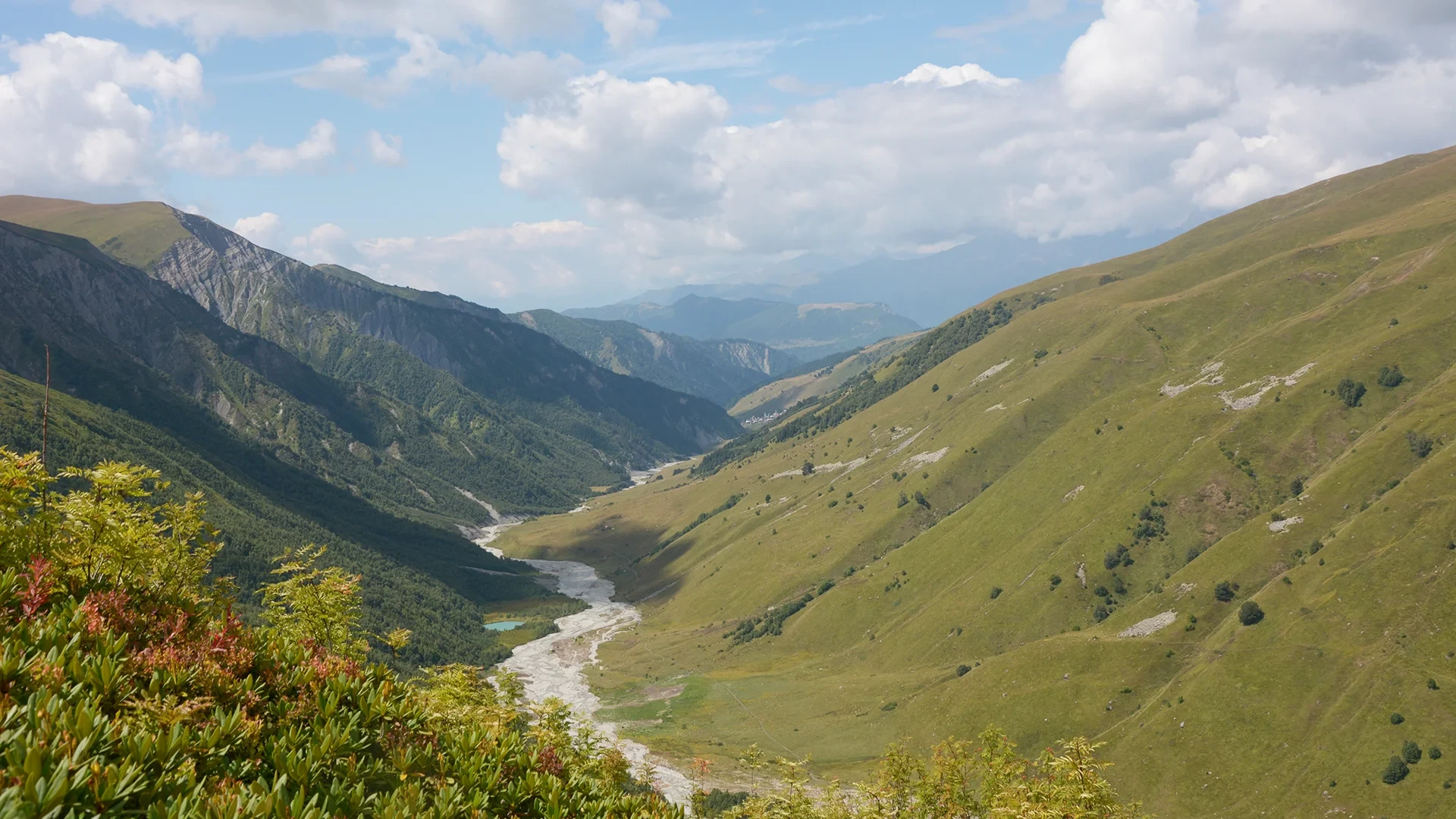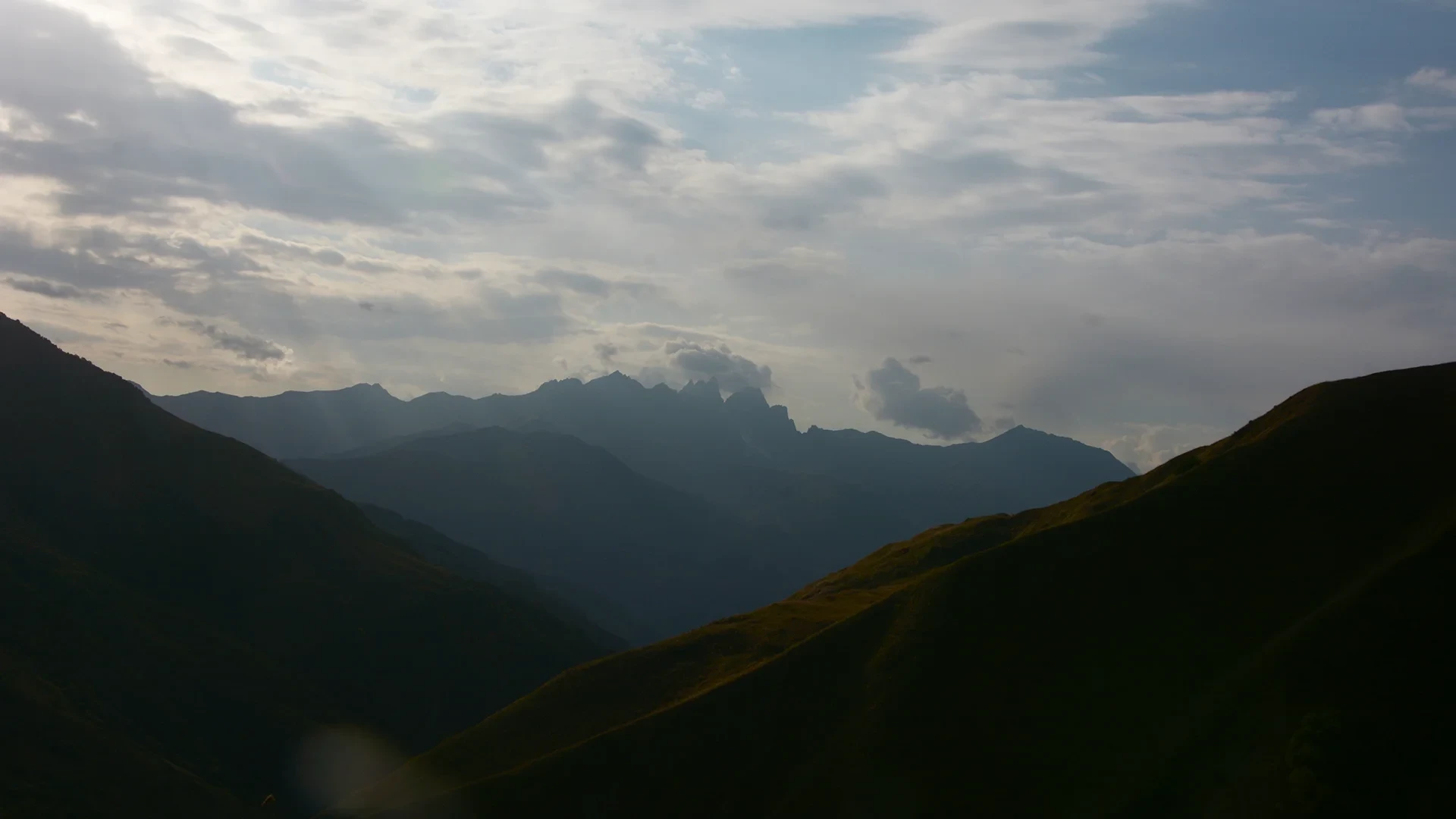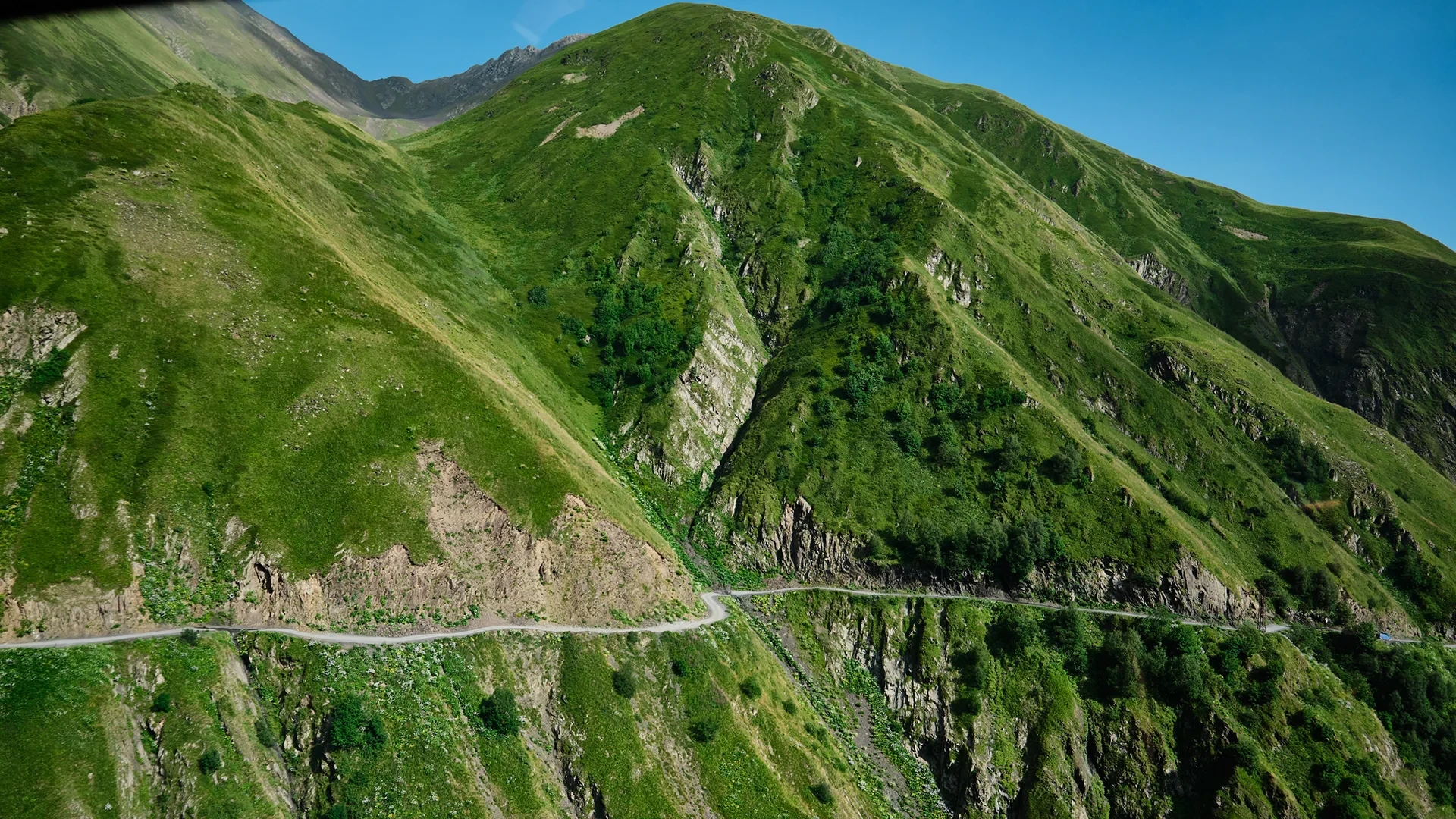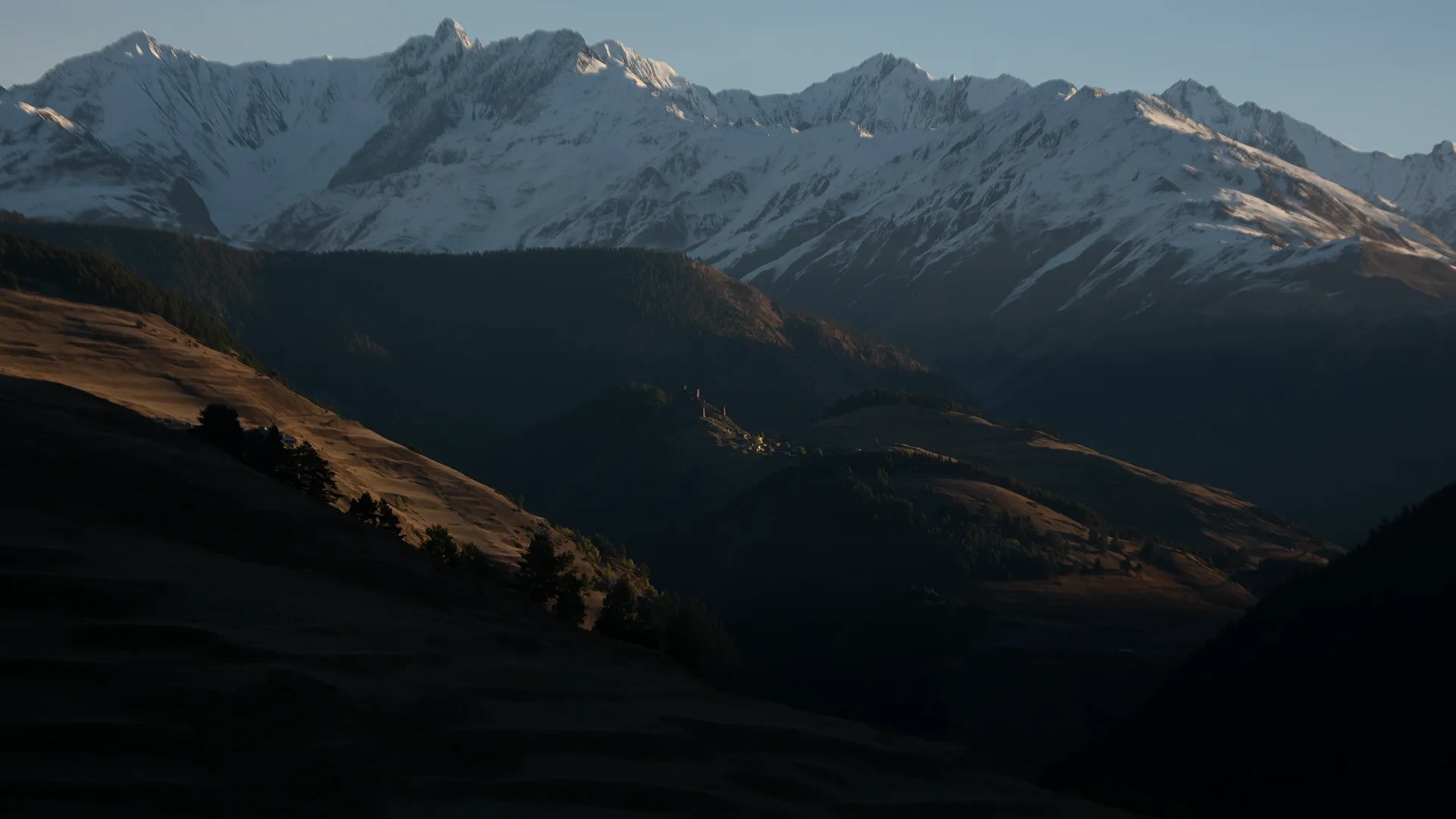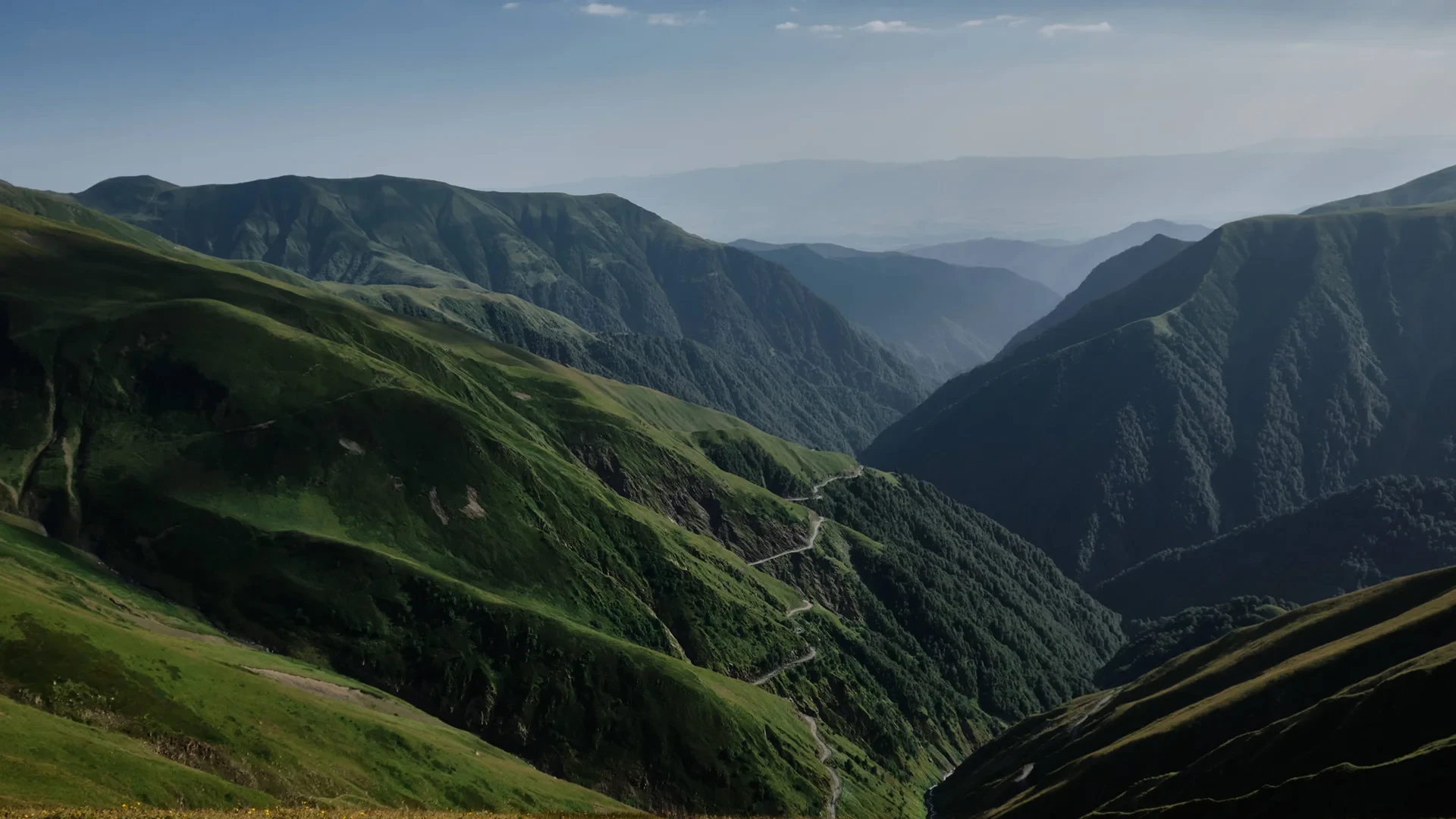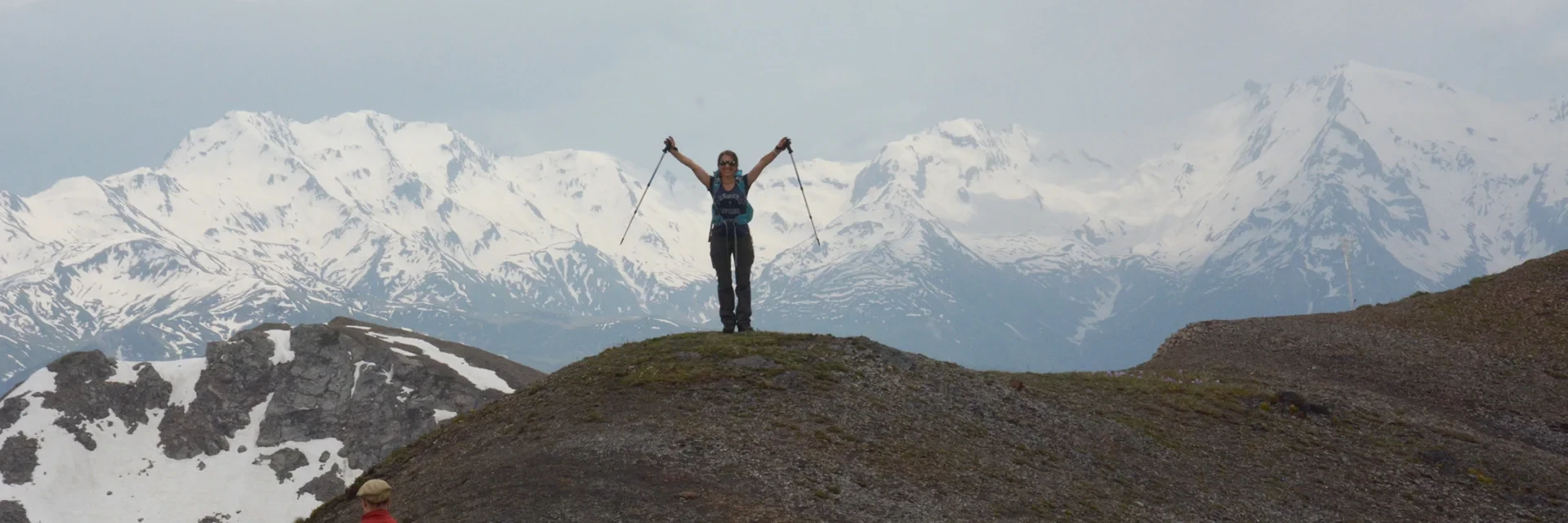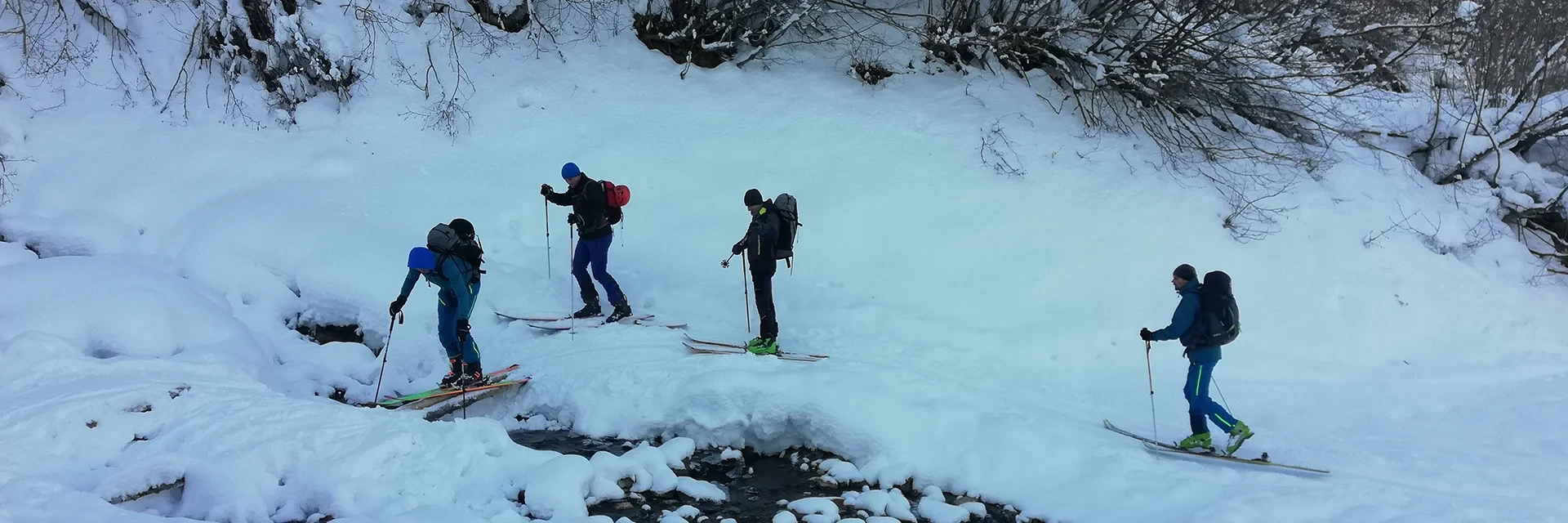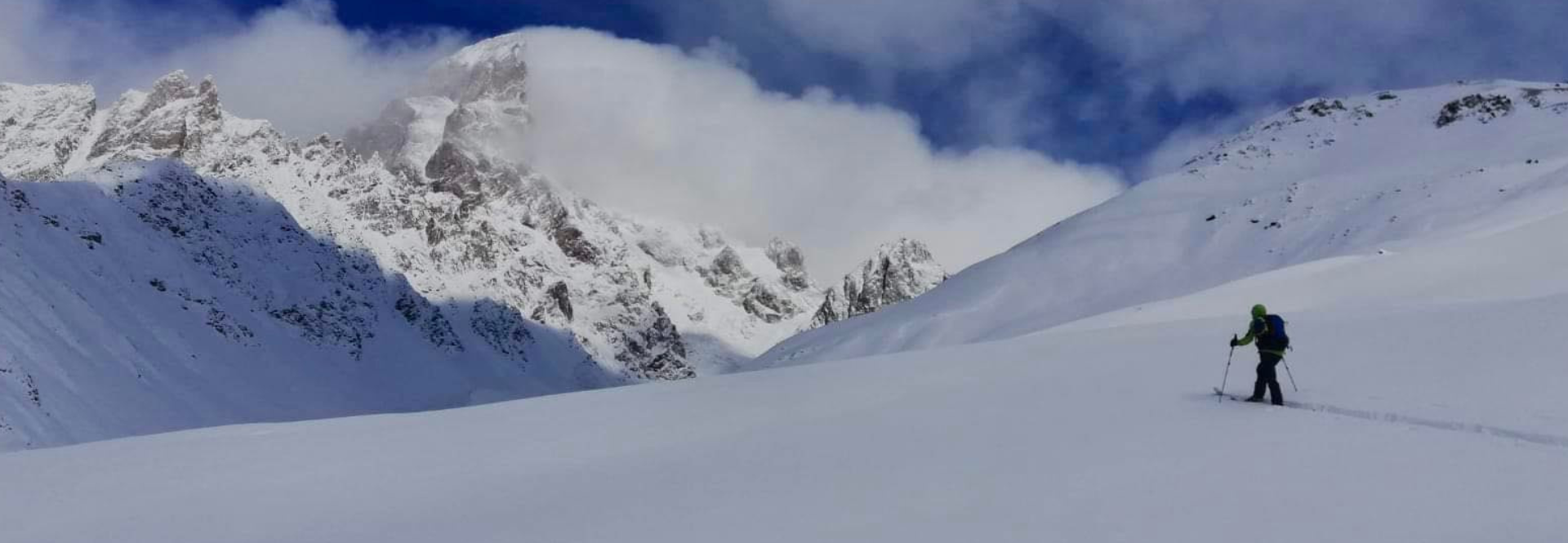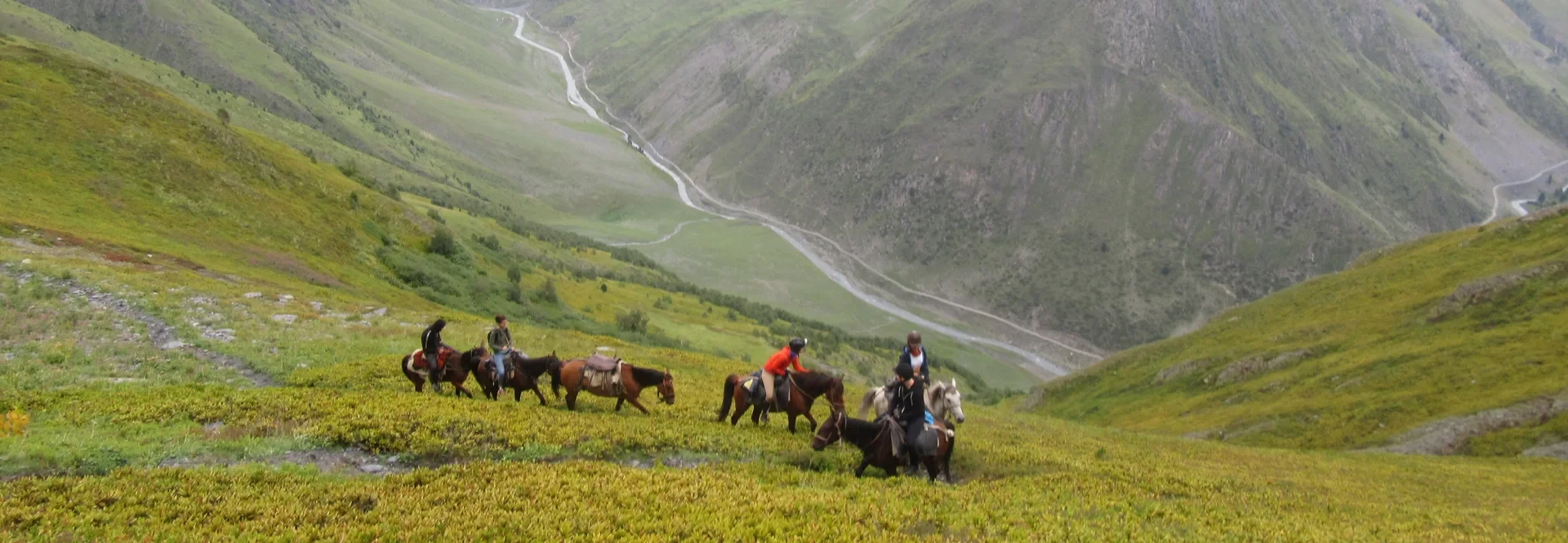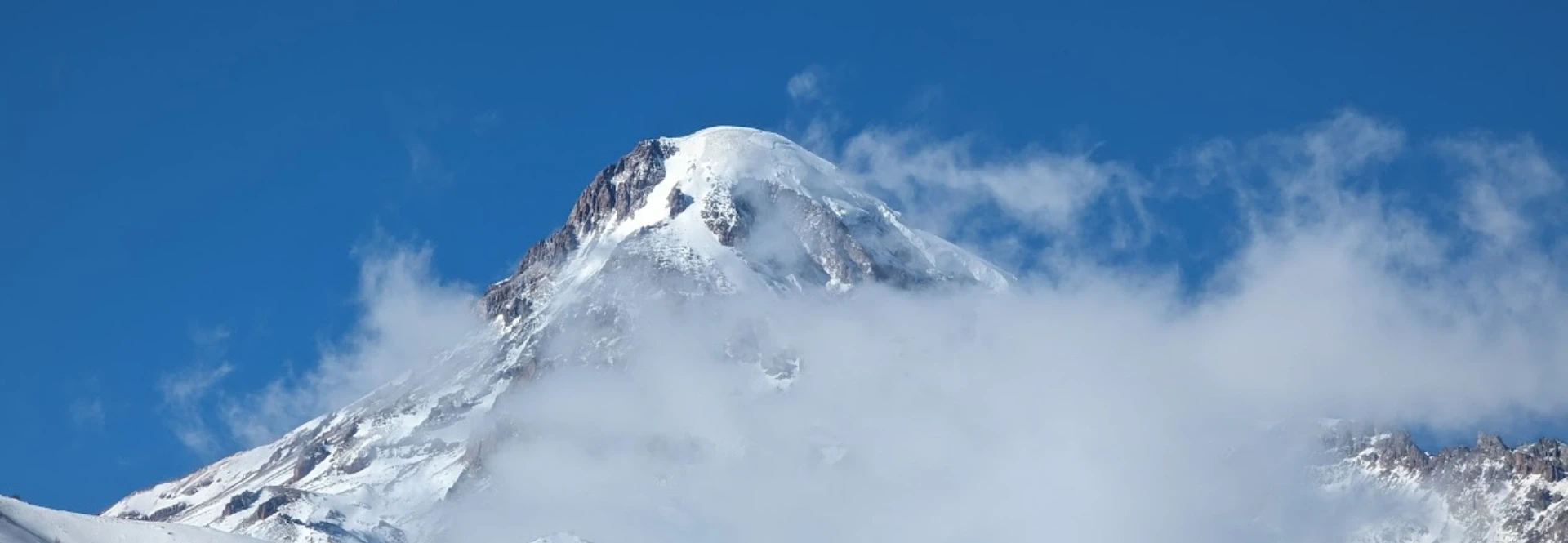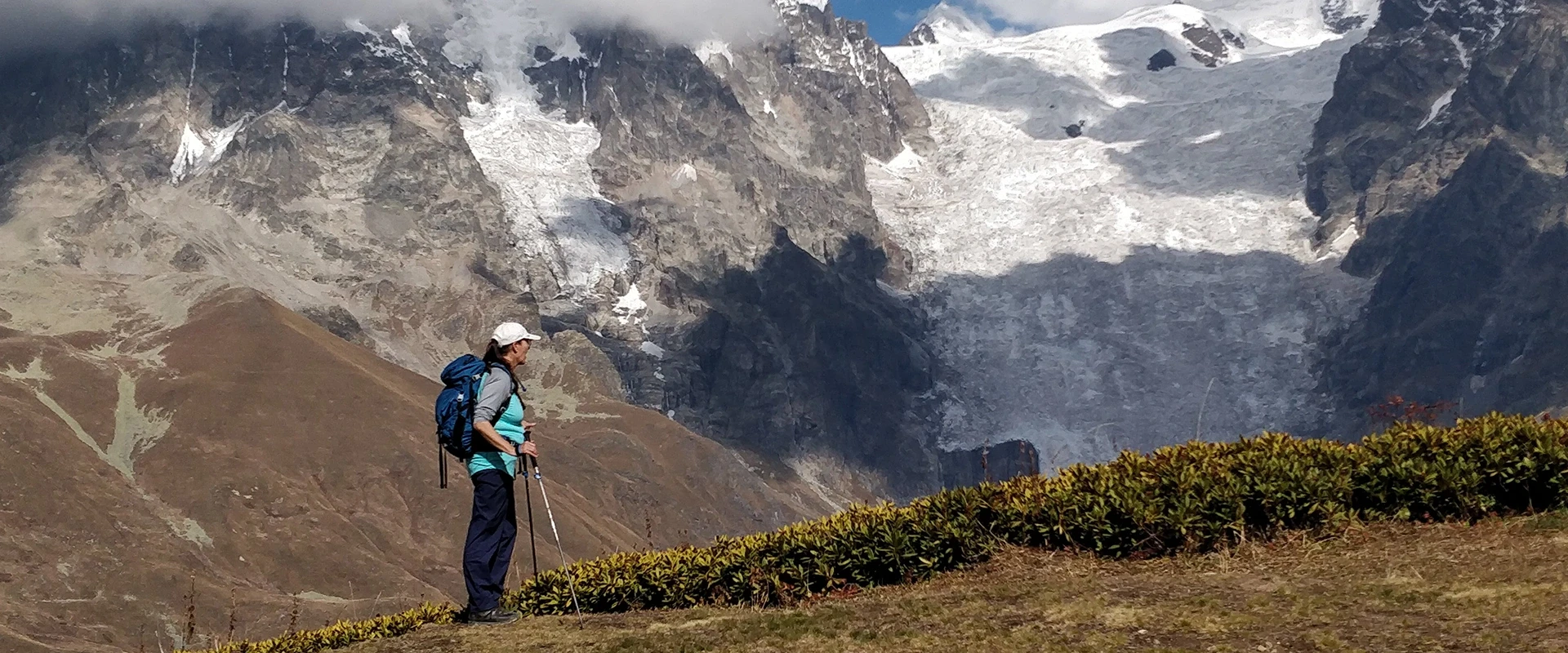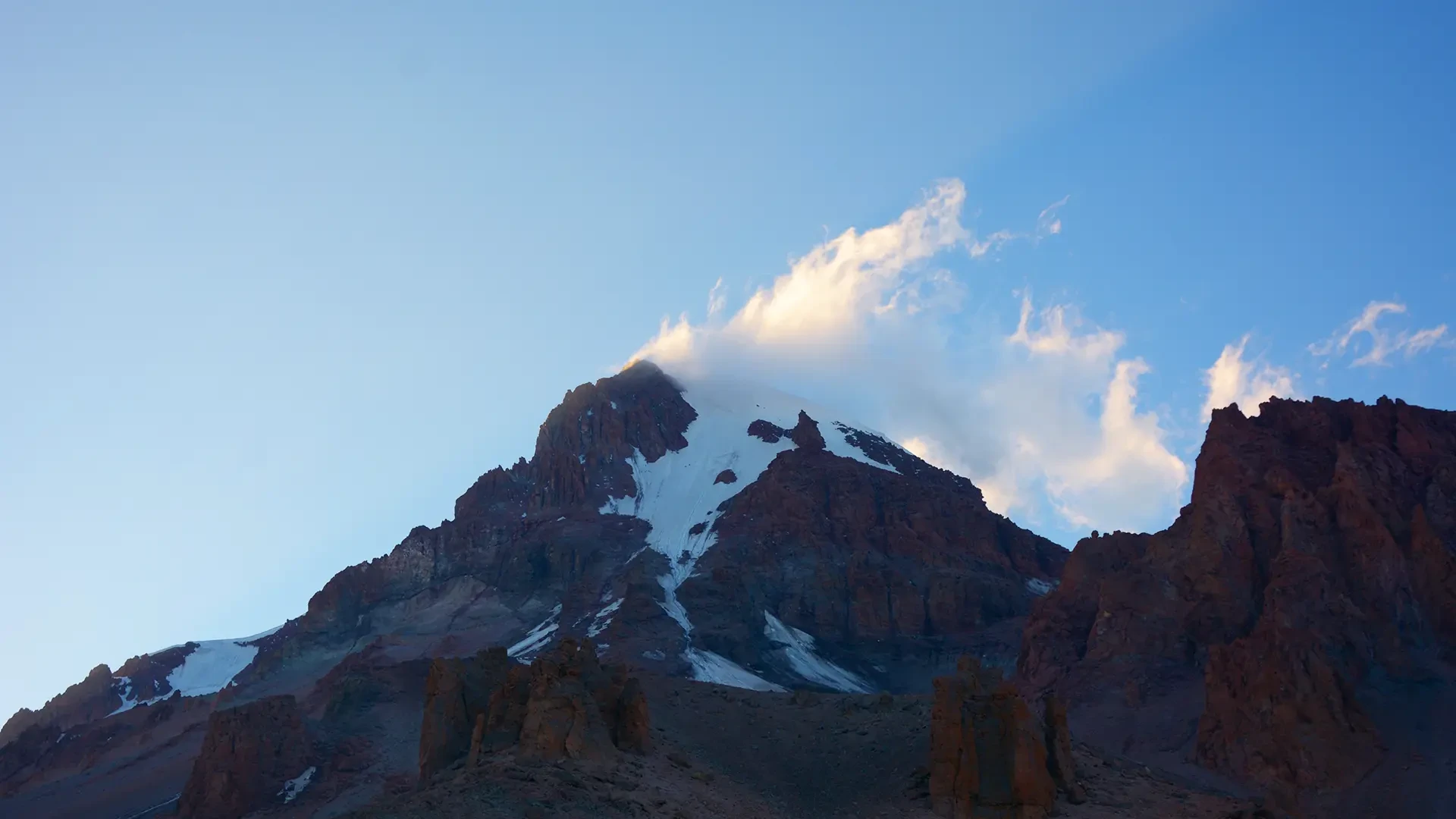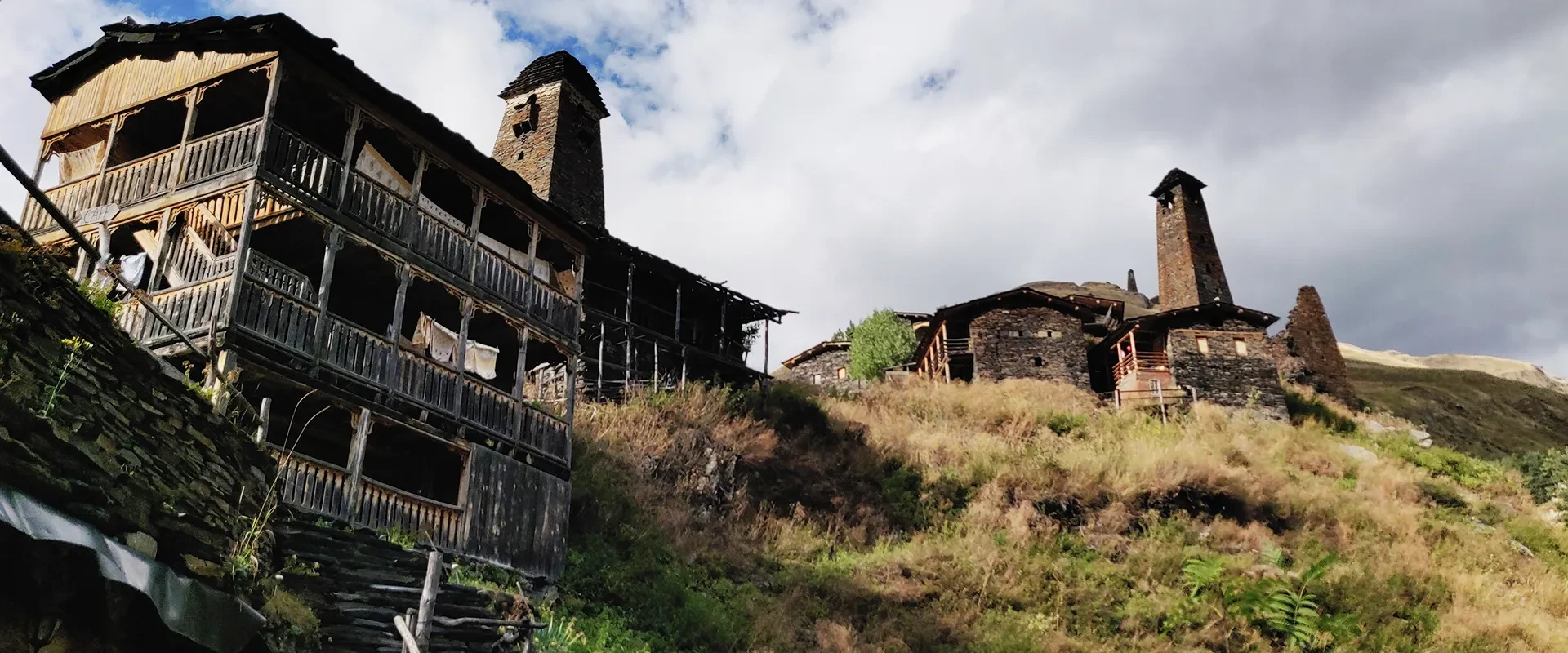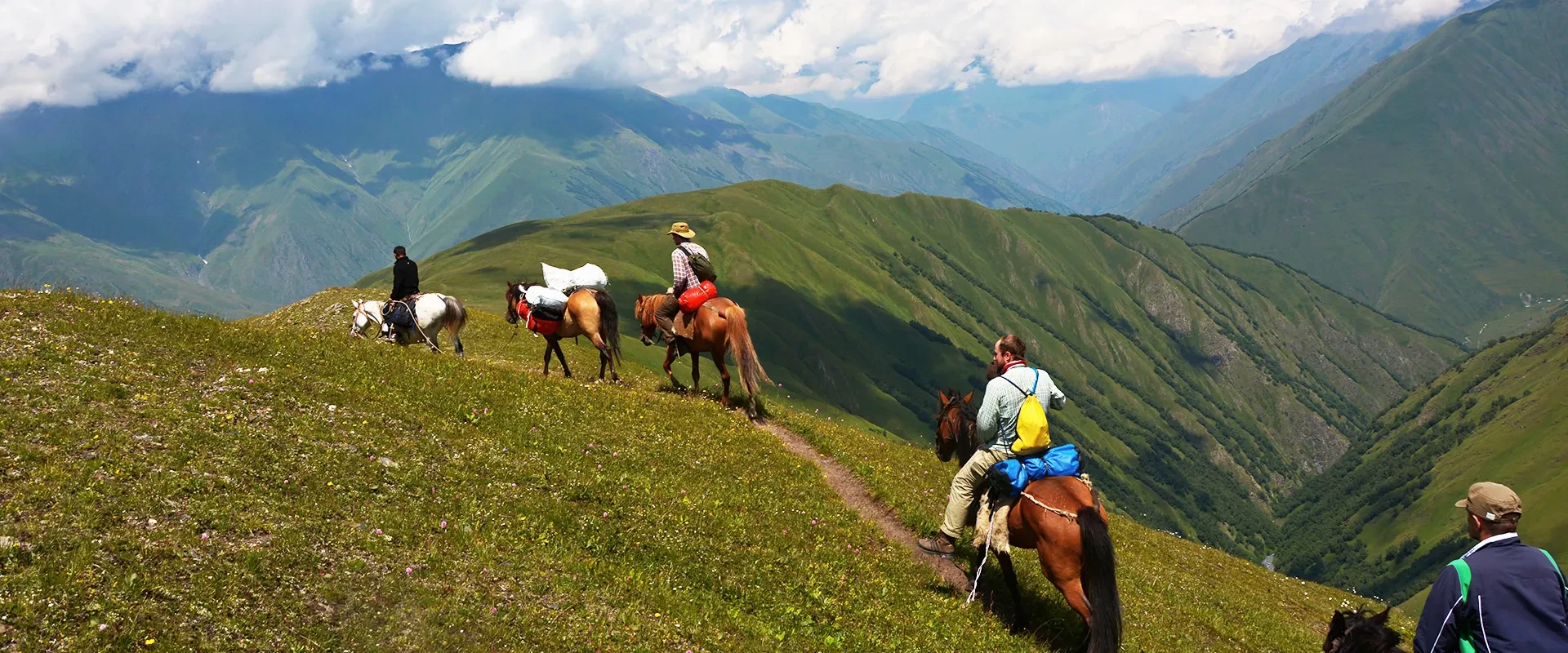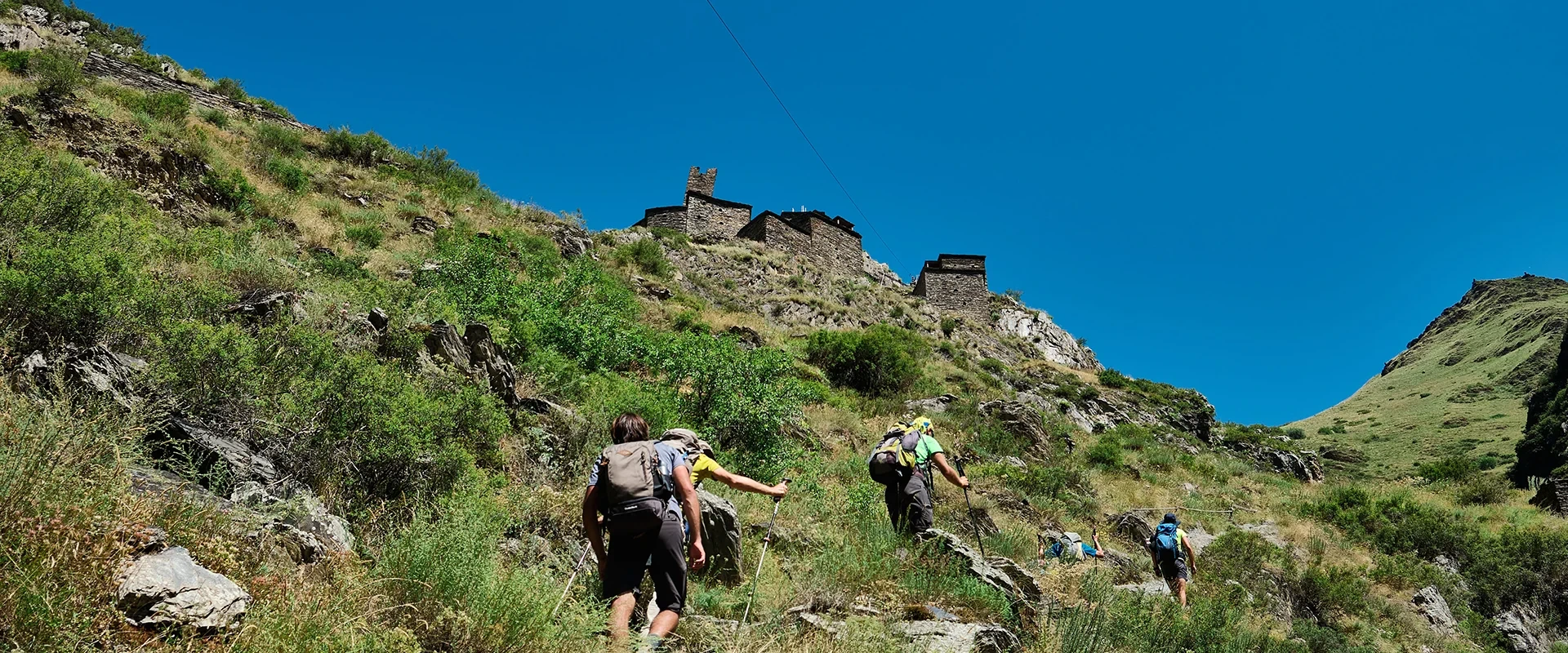Georgia, a country in the Caucasus right at the edge of Europe, is a growing destination for hiking lovers. While small, its nature is surprisingly diverse, with hikers of all levels and preferences able to find something that fits their taste, be it tall mountains, wild forests, or soft and open valleys.
In the blog below, we’ll break down the best hiking routes in Georgia for those visiting for the first time.
The Most Iconic One: Svaneti Region Treks
Currently, the Svaneti region is undoubtedly the most popular place for trekking in Georgia, with many of its trails already well-trodden classics. The Mestia to Ushguli trek is likely the most well-known. It usually lasts around four days, covering around 58 kilometers from the main town of Mestia to Ushguli, a remote village known for its ancient stone towers. Both Mestia and Ushguli are part of Upper Svaneti, the area added to the UNESCO World Heritage Site in 1996. The trek is considered moderately difficulty: each day involves about 5-7 hours of walking, but ascents and descents are largely manageable. The trail passes through several traditional Svan villages with beautiful views of the towering Caucasus Mountains along the way, including Mount Shkhara, Georgia’s highest peak.
Those interested in a more off-the-beaten-track should try the Chuberi to Mestia trek. Stretching 80-90 kilometers, it takes around 5-6 days to complete. The route passes through three high mountain passes, including the 2,941-meter Gul Pass. That said, this trail is more physically demanding, particularly the first day’s steep ascent to Utviri Pass, and requires at least some hiking experience. One of the most picturesque trails for hiking in Georgia, it remains relatively unknown as of right now, even among locals!
Those looking for one-day Svaneti trekking routes should try hiking to the Koruldi Lakes. The route takes around 6-8 hours from Mestia and leads to alpine lakes at an elevation of 2,850 meters. On a clear day, the views of Mount Ushba and the surrounding peaks are spectacular.
The One for Those with Limited Time: Kazbegi Region
The Kazbegi hiking trails are most popular among those more constrained in time. Kazbegi is closer to Tbilisi and offers a plethora of options, both challenging and accessible. That said, Kazbegi is still a mountain region, and its trails are best visited in warmer months, from mid-June to September.
The most popular trek would be to the Gergeti Glacier, though it’s one of the toughest routes. Starting in Stepantsminda, hikers climb to the glacier at 3,200 meters, with the round trip taking 8-10 hours. The path involves rocky terrain and steep inclines, so it’s unsuited for those with no trekking experience.
That’s not to say that newbie hikers cannot enjoy Georgia’s wilderness hikes. The Truso Valley trek, for example, is a great option. A relatively flat trail, it takes about 4-6 hours round trip. The route is known for the colorful mineral springs, ancient ruins, and panoramic views you’ll enjoy along the way. Another relatively easy option is the trail from Juta to Chaukhi Mountain, often called the "Georgian Dolomites."
The One Everyone Should Visit: Tusheti National Park
Tusheti is Georgia’s most remote region. It’s only accessible via a seasonal mountain road - the Abano Pass - open from late June to mid-October. Tusheti treks are some of Georgia’s wildest and most interesting ones.
The best-known among them is the Omalo to Shatili trek that crosses into the Khevsureti region. The multi-day trail covers about 70 kilometers and crosses the Atsunta Pass, over 3,400 meters high. It’s rightly considered to be one of the most challenging Georgian mountain trails in Georgia and should only be attempted with an experienced guide.
For those interested in lesser-explored trails, Tusheti has plenty to offer. One option would be the Pankisi to Omalo trek. The hike spans approximately 74 kilometers over 5-6 days, crossing theSakorno Pass at 2,835 meters into the Tusheti region. This trail offers a mix of serene forests, rugged highlands, and wild alpine valleys, with a particularly challenging ascent on the second day. With minimal infrastructure and few visitors, even among locals, this trek is ideal for people seeking an off-the-beaten-path experience in one of Georgia's most untouched regions.
If limited in time, try the Omalo to Diklo trail. A 16-kilometer round trip takes about 6 hours. This route passes through the Shenako village and ends at the ruins of the Diklo Fortress, with great views of the valleys below.
Explore Georgia’s Mountain Trails in a Safe Way: Practical Information
Due to Georgia’s mountainous regions' remoteness and lack of infrastructure, hiring a guide is strongly advised for all treks. Attempting to navigate the longer trails alone is risky, as there are limited support resources. Local guides not only ensure safety but also provide insight into the culture and history of the regions. Some treks, like the Omalo to Shatili route or the ascent to Gergeti Glacier, are too demanding to attempt independently unless you are highly experienced and well-prepared.
If you still insist on hiking alone, preparation is crucial. Maps, GPS devices, and adequate supplies are a must. And don’t do it alone - connect with local trekking groups or find companions beforehand to ensure at least some level of safety during the hike.
Georgia’s trekking season runs from late spring to early fall. Snow can linger on higher trails until June, so July, August, and September are generally the best months for most routes. Generally, Caucasus mountains trekking is inadvisable from late fall through late spring, unless you’re an experienced trekker well-equipped for cold, snowy conditions.
Book a Guided Tour and Experience the Best Georgia Has to Offer!
Eager to experience the unparalleled beauty of Georgia’s mountain trails? Book your next adventure with CaucasTours and walk these stunning trails!
Our guided treks prioritize safety, sustainability, and support for local communities, ensuring an unforgettable experience, where you get to know the country’s natural and cultural heritage in a responsible, supportive way! Discover the beauty of Georgia with a team dedicated to green and ethical travel!

